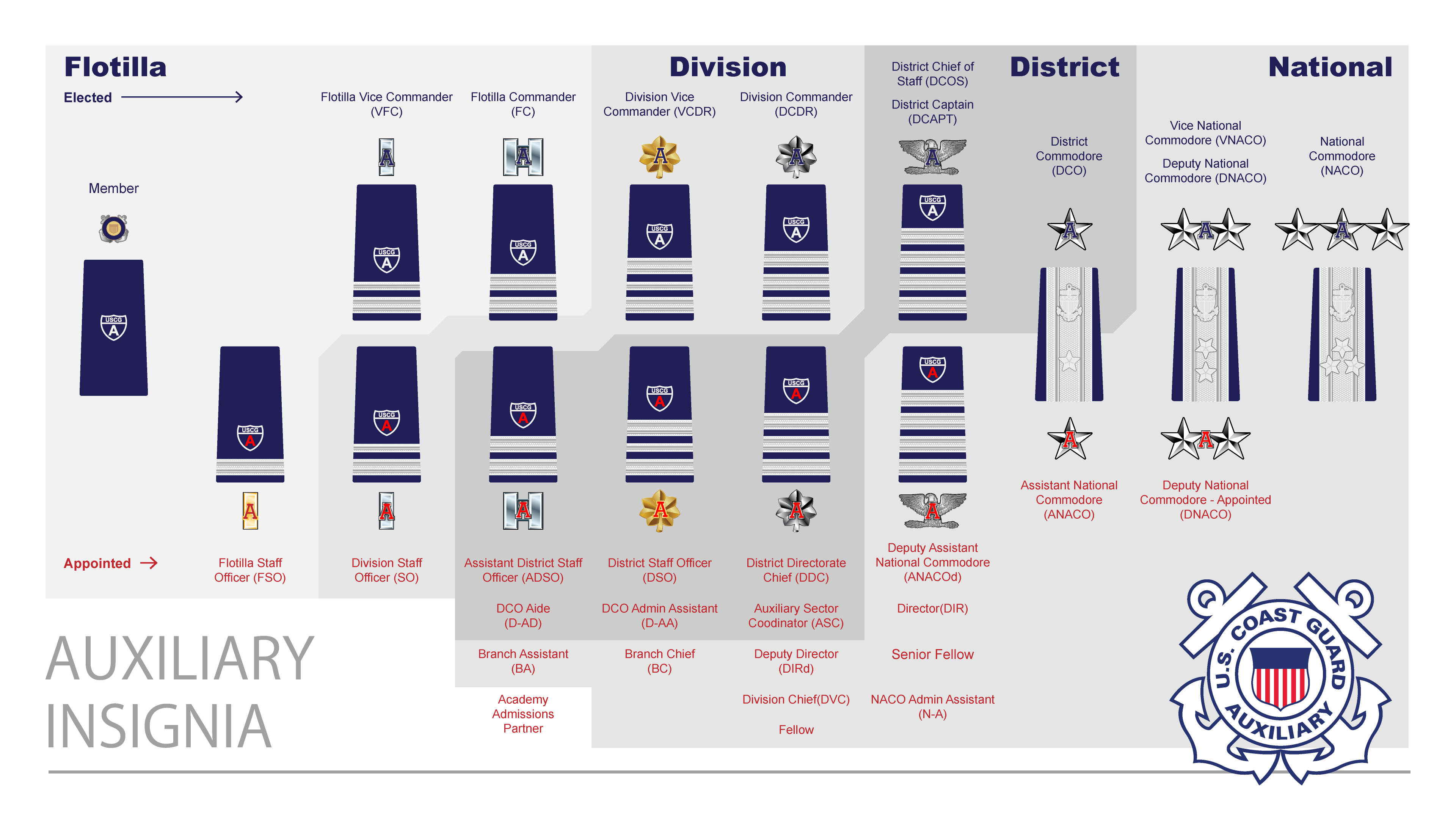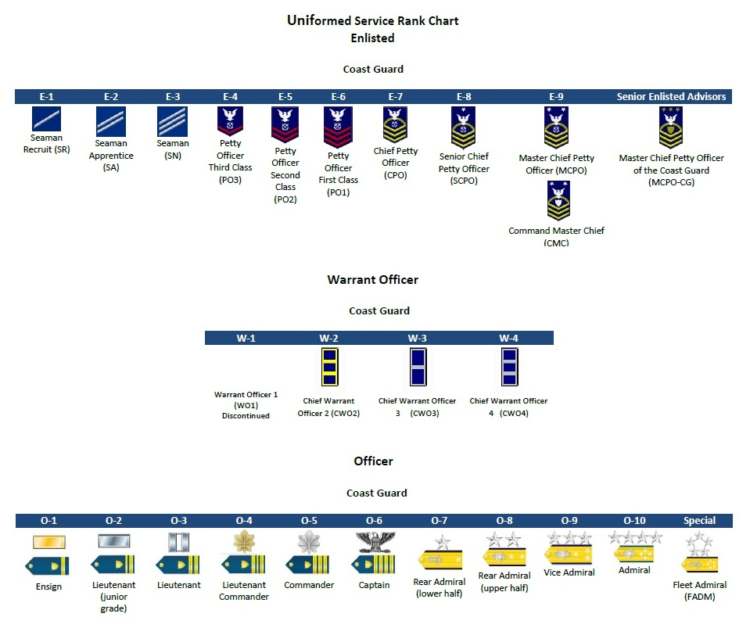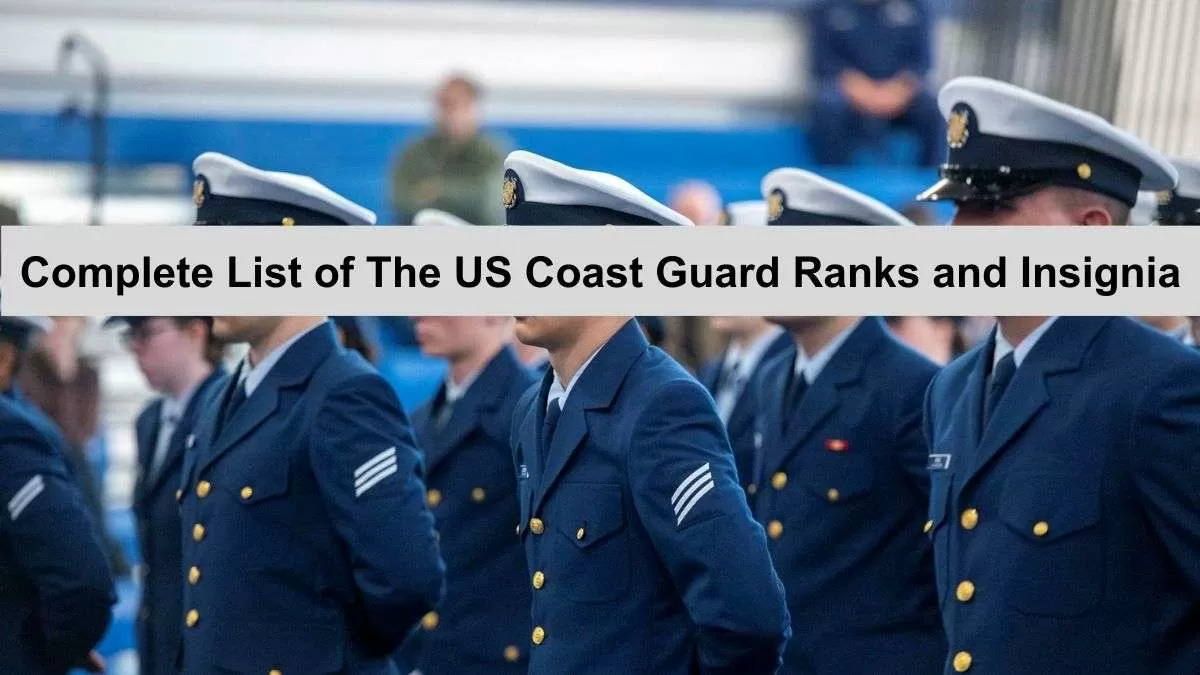US Coast Guard Enlisted Ranks

Introduction to US Coast Guard Enlisted Ranks

The United States Coast Guard (USCG) is a unique branch of the US military, operating under the Department of Homeland Security during peacetime and the Department of the Navy during wartime. The Coast Guard’s enlisted ranks are divided into several levels, each with its own set of responsibilities and requirements. In this article, we will explore the different enlisted ranks in the US Coast Guard, from the lowest to the highest, and discuss the roles and responsibilities associated with each rank.
Enlisted Ranks in the US Coast Guard

The US Coast Guard has a total of nine enlisted ranks, which are divided into three main categories: junior enlisted, non-commissioned officers (NCOs), and senior enlisted leaders. Here are the enlisted ranks in the US Coast Guard, in order from lowest to highest: * Seaman Recruit (E-1) * Seaman Apprentice (E-2) * Seaman (E-3) * Petty Officer Third Class (E-4) * Petty Officer Second Class (E-5) * Petty Officer First Class (E-6) * Chief Petty Officer (E-7) * Senior Chief Petty Officer (E-8) * Master Chief Petty Officer (E-9)
Junior Enlisted Ranks

The junior enlisted ranks in the US Coast Guard are the entry-level positions for new recruits. These ranks are responsible for learning the basics of Coast Guard operations and developing the skills and knowledge needed to advance to higher ranks. * Seaman Recruit (E-1): This is the lowest enlisted rank in the US Coast Guard. Seaman Recruits are new recruits who are still in basic training. * Seaman Apprentice (E-2): After completing basic training, Seaman Recruits are promoted to Seaman Apprentice. This rank is responsible for learning the fundamentals of Coast Guard operations and developing basic skills. * Seaman (E-3): Seamen are responsible for performing routine tasks and duties, such as maintenance, repairs, and inspections.
Non-Commissioned Officer (NCO) Ranks

The NCO ranks in the US Coast Guard are responsible for leading and supervising junior enlisted personnel. These ranks have completed advanced training and have developed specialized skills and knowledge. * Petty Officer Third Class (E-4): This rank is responsible for leading small teams and performing specialized tasks, such as navigation, communications, or engineering. * Petty Officer Second Class (E-5): Petty Officers Second Class are responsible for supervising junior personnel and performing complex tasks, such as equipment maintenance or repair. * Petty Officer First Class (E-6): This rank is responsible for leading larger teams and performing highly specialized tasks, such as tactical operations or search and rescue.
Senior Enlisted Leader Ranks

The senior enlisted leader ranks in the US Coast Guard are responsible for leading and managing large teams, as well as developing and implementing policies and procedures. * Chief Petty Officer (E-7): Chief Petty Officers are responsible for leading and managing teams, as well as providing technical expertise and guidance. * Senior Chief Petty Officer (E-8): Senior Chief Petty Officers are responsible for leading and managing large teams, as well as developing and implementing policies and procedures. * Master Chief Petty Officer (E-9): This is the highest enlisted rank in the US Coast Guard. Master Chief Petty Officers are responsible for leading and managing the entire enlisted force, as well as providing strategic guidance and advice to senior officers.
📝 Note: Advancement to higher ranks in the US Coast Guard is based on a combination of factors, including performance, education, and time in service.
Rank Insignia and Uniforms

The US Coast Guard uses a unique system of rank insignia and uniforms to identify enlisted personnel. The rank insignia are worn on the sleeve or collar of the uniform, and consist of a combination of stripes, chevrons, and other symbols. The uniforms themselves are also distinctive, with different colors and patterns used to identify different ranks and specialties.
| Rank | Insignia | Uniform |
|---|---|---|
| Seaman Recruit (E-1) | No insignia | Basic training uniform |
| Seaman Apprentice (E-2) | Single stripe | Duty uniform |
| Seaman (E-3) | Double stripe | Duty uniform |
| Petty Officer Third Class (E-4) | Chevron | Service uniform |
| Petty Officer Second Class (E-5) | Double chevron | Service uniform |
| Petty Officer First Class (E-6) | Triple chevron | Service uniform |
| Chief Petty Officer (E-7) | Gold anchor | Chiefs' uniform |
| Senior Chief Petty Officer (E-8) | Gold anchor with star | Chiefs' uniform |
| Master Chief Petty Officer (E-9) | Gold anchor with two stars | Chiefs' uniform |

In summary, the US Coast Guard enlisted ranks are divided into three main categories: junior enlisted, non-commissioned officers, and senior enlisted leaders. Each rank has its own set of responsibilities and requirements, and advancement to higher ranks is based on a combination of factors, including performance, education, and time in service. The unique system of rank insignia and uniforms used by the US Coast Guard helps to identify enlisted personnel and distinguish between different ranks and specialties.
What is the lowest enlisted rank in the US Coast Guard?

+
The lowest enlisted rank in the US Coast Guard is Seaman Recruit (E-1).
How many enlisted ranks are there in the US Coast Guard?

+
There are nine enlisted ranks in the US Coast Guard.
What is the highest enlisted rank in the US Coast Guard?

+
The highest enlisted rank in the US Coast Guard is Master Chief Petty Officer (E-9).



